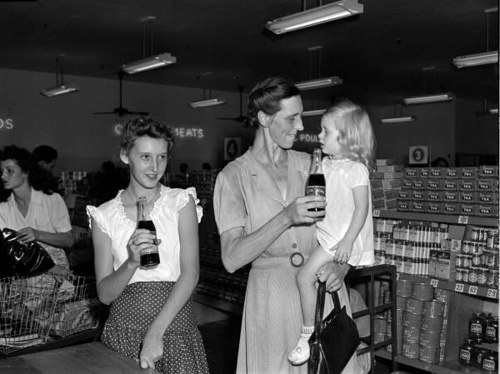Jamie Oliver and Jimmy Doherty have taken on the Food fight that Family and Parenting Magazine think is long overdue. Energy Drinks are #notforchildren.
And if that statement puts you immediately in defensive mode for your diabetic child, then please hold fire and wait until you’ve read the whole article.
Jamie Oliver has long been a campaigner for positive change within the food and beverage industry and with his life-long school-mate Jimmy Doherty, they have used their Friday Night Feast programme (Channel 4, UK), as a weekly platform to campaign for fairer prices, better welfare and production conditions, and greater awareness of under-utilised food products in order to cut waste.
Now the mighty duo is taking on the fastest growing sub-sector of the sugar industry, that of the non-alcoholic energy drink sector.
Sugar is big business and the energy drink manufacturers are not going to give in without a fight. As much as they market to adults through seductive advertising around enhanced cognitive ability (Red Bull) or a more blunt approach around high-octane motorsport and scantily clad promotion staff (Monster) – the dirty truth is that the majority of their sales are made in the convenience stores and this is the battleground where they each try to take a greater share of market without ever talking about it because deep down they all know exactly which demographic is buying this legal mood enhancer. Kids on the way to and from school.
Sugar affects mood, sugar affects behaviour. How can we expect our school teachers and educators to teach children whose energy levels are artificially peaked just as they enter a lesson and crash during the very period where we expect good behaviour and concentration.
manufacturers have made a token effort to acknowledge this by printing on the cans “not suitable for children” whilst reaping the pocket-money profits
Bouncing between sugar spikes and lows are not good for children, I don’t think anyone would argue with us on that. But before we vilify the sugar producers completely, let’s make clear that sugar is only half the problem.
We think it’s important to separate the issue of caffeinated drinks from high sugar drinks. We would not give coffee to our children. We believe that caffeine should be banned from being accessible to children and high-sugar should be controlled and taxed with a medical dispensation allowed for those with need.
I’m not an expert on diabetes at all and therefore would not profess to understand how Lucozade has become essential to children with diabetes, however I believe that other products are also available to help stabilise insulin levels and I also believe that preventing the sale of energy drinks to children will not prevent adults from continuing to ensure there is a market for the drinks and that retailers will continue to stock them, and that availability will continue should they be needed in an emergency.
With the brand extensions taking place in the cola market and the attention on sugar, the soft-drink/soda manufacturers have managed to divert attention by replacing sugars with artificial sweeteners and avoiding talking about the caffeine. Sugar is addictive, caffeine is addictive, artificial sweeteners are addictive. Addictive products are good news for product sellers.
Controlling children’s diets is fundamental to behaviour control at both home and school and therefore impacts on their ability to concentrate and learn.
I was shocked to visit my children’s school at lunchtime one day to find out they were being fed ‘healthy fruit’ which consisted of peaches in syrup with ‘whip’. Sugar laced with more sugar – which they then had to eat in silence, bottling up all that artificial energy, before being sent straight into their afternoon’s lessons.
All of this is absolute madness and a recipe for badly behaved children who need to burn off excess energy, let alone considering how sugar and caffeine spikes have an even more dramatic effect on children with ADHD – which then has a knock-on effect on the rest of the pupils and amplifies the worsening behaviour in the rest of them.
Sugar is bad for kids. Giving them caffeine is downright irresponsible. The energy drinks manufacturers have made a token effort to acknowledge this by printing on the cans “not suitable for children” whilst reaping the pocket-money profits. We are not advocating for over-regulation and a ‘nanny-state’ we are saying that we believe that caffeine should be restricted to over an appropriate minimum age limit and that sugar should be restricted through legislation, societal pressure, or taxed to a point where it’s used simply as flavouring and not as a method to drive addiction and product purchase.
We stand with Jamie and Jimmy. Energy Drinks are #notforchildren.
